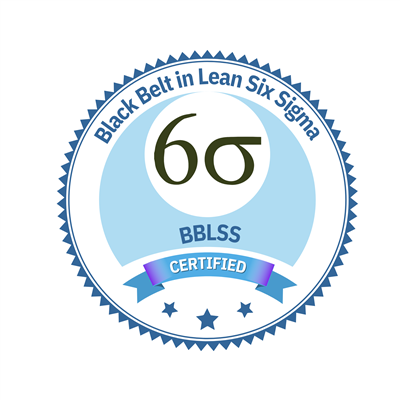Black Belts work with Master Black Belts to use Six Sigma methods for specific projects. They spend all their time working on Six Sigma. Their main job is to carry out Six Sigma projects and provide leadership for special tasks. Champions and Master Black Belts decide which projects to focus on. Certified Lean Six Sigma Black Belts (BBLSS)® know a lot about Lean Six Sigma and lead improvement projects full-time. They understand every part of the D-M-A-I-C process and know how to use Six Sigma tools and Lean principles. They can explain Six Sigma ideas and tools.
Black Belts lead teams, know how teams work, and assign tasks to team members. They understand the DMAIC model and Lean concepts. They can identify activities that don't add value and use specific tools.
E-Course Duration: 35 to 40 Hours

